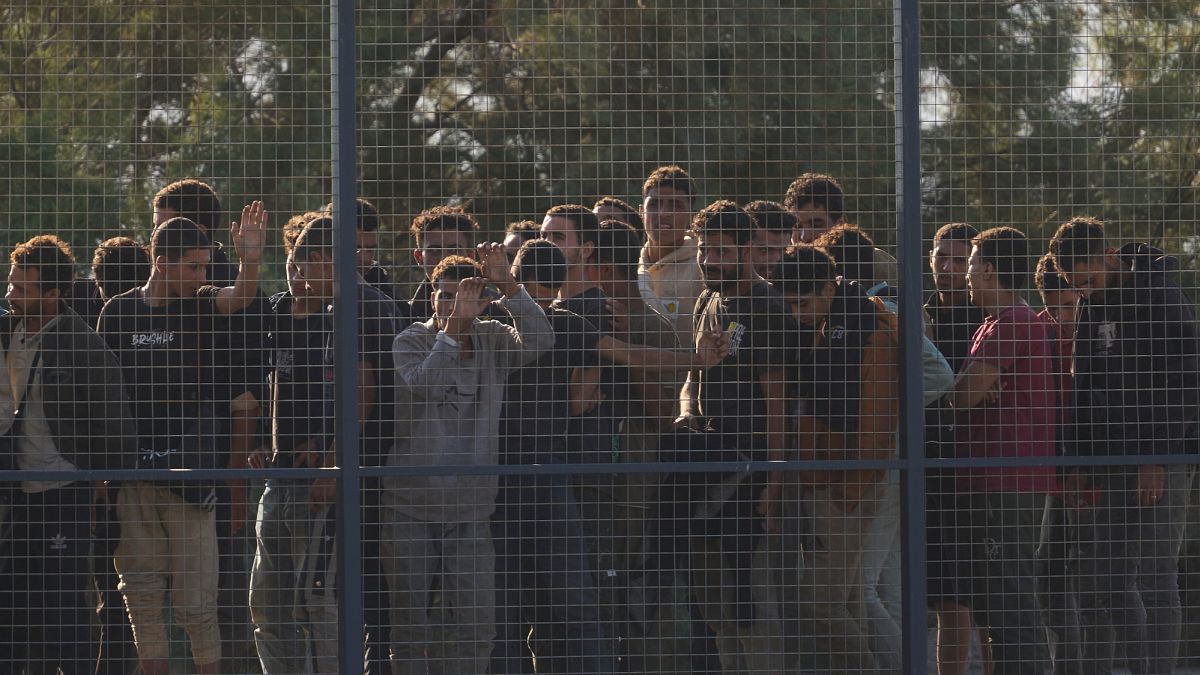Published on
Greece’s parliament approved a three-month suspension of asylum claims for migrants arriving by sea from Libya on Friday, despite strong criticism from the United Nations refugee agency and Europe’s top human rights official.
The measure suspends asylum application processing for those arriving by sea from North Africa, following a dramatic surge in Mediterranean crossings that has overwhelmed reception centres on the island of Crete.
Authorities on Crete are struggling to provide basic services, using temporary facilities to house migrants, primarily from Somalia, Sudan, Egypt and Morocco, according to island officials.
The suspension passed by a vote of 177-74 despite fierce opposition from left-wing parties, which unsuccessfully challenged the amendment as unconstitutional.
Thanos Plevris, the migration affairs minister, told lawmakers up to 1,000 migrants were arriving daily and described the situation as resembling an “invasion.”
Authorities are continuing efforts to intercept boats south of Crete and take migrants directly to mainland facilities.
On Thursday, more than 500 people were transferred to the port of Lavrio near Athens after being intercepted south of the island of Crete.
And a further 200 migrants were transferred to the port of Piraeus near Athens, in a separate operation on the same day.
The emergency measures drew sharp criticism from international human rights organisations.
The United Nations High Commissioner for Refugees expressed “deep concern.” While acknowledging Greece’s right to manage borders, UNHCR said border control “must be in line with international and European law.”
Michael O’Flaherty, the Council of Europe’s Commissioner for Human Rights, also condemned Athens’ response, arguing it “would legalise returning people to face a risk of torture and other serious violations, in breach of (Greece’s international) obligations.”
Speaking in parliament on Wednesday, Prime Minister Kyriakos Mitsotakis said the government planned to build a detention centre on Crete for migrants and was seeking direct collaboration between the Libyan and Greek coastguards to turn back boats leaving the North African country.
“This emergency situation clearly demands emergency measures,” Mitsotakis told lawmakers.
“The Greek government is sending a firm message: the route to Greece is closing, and that message is directed at all human traffickers.”
Trying to reach Europe
Greece remains a key entry point to the EU for individuals fleeing conflict and hardship in the Middle East, Africa, and Asia.
Arrivals surged last year, with over 60,000 migrants landing in Greece — the majority by sea — compared to around 48,000 in 2023, according to UN refugee agency data.
By mid-June 2025, Greece had recorded 16,290 arrivals, over 14,600 of which were by sea.
With Greek authorities stepping up patrols along the eastern maritime border with Turkey, traffickers appear to be increasingly choosing the longer and more dangerous route across the Mediterranean from North Africa, using larger boats capable of carrying more people.
Additional sources • AP

